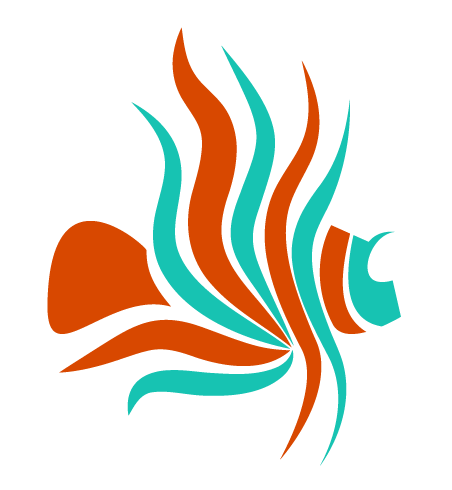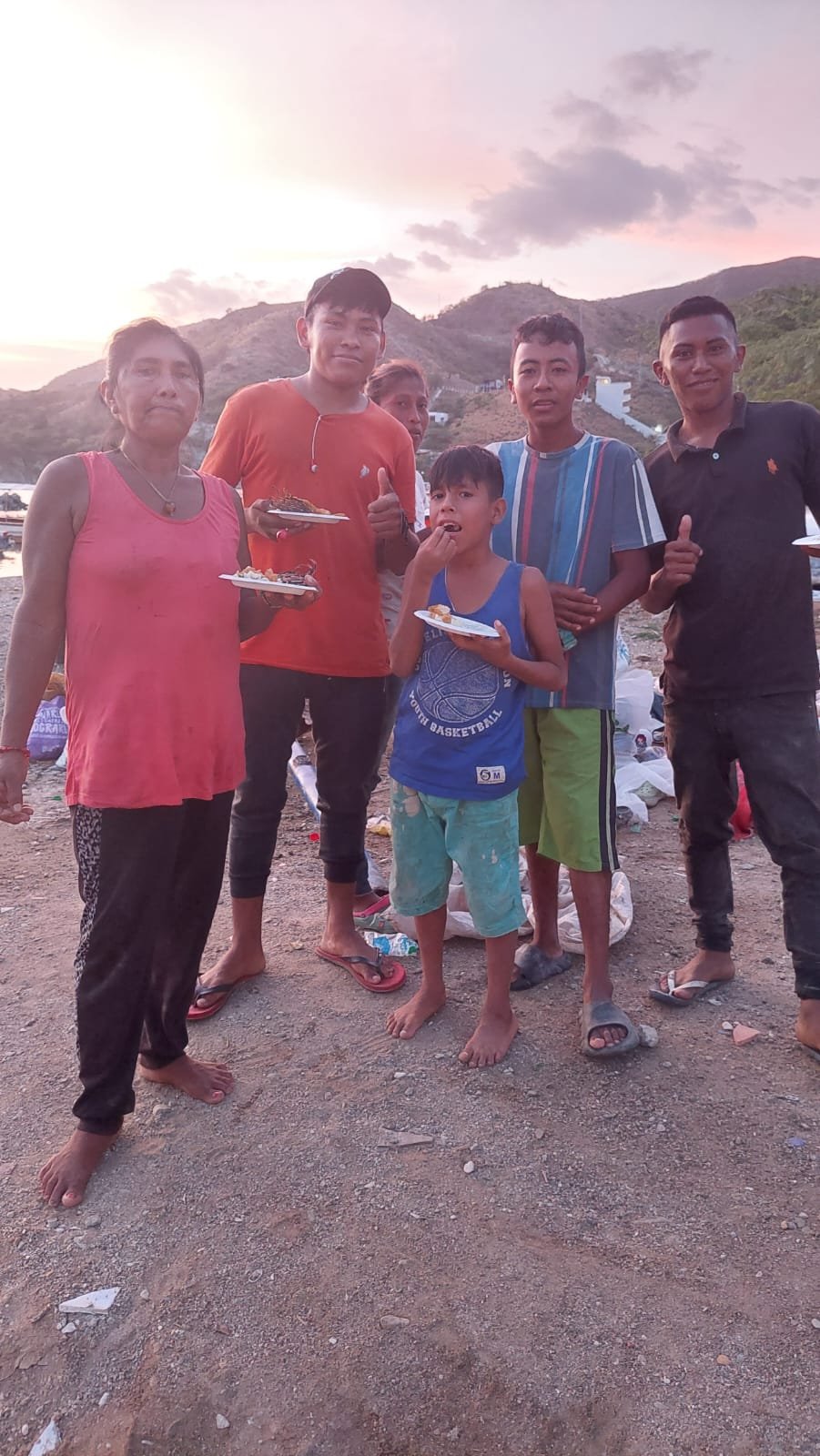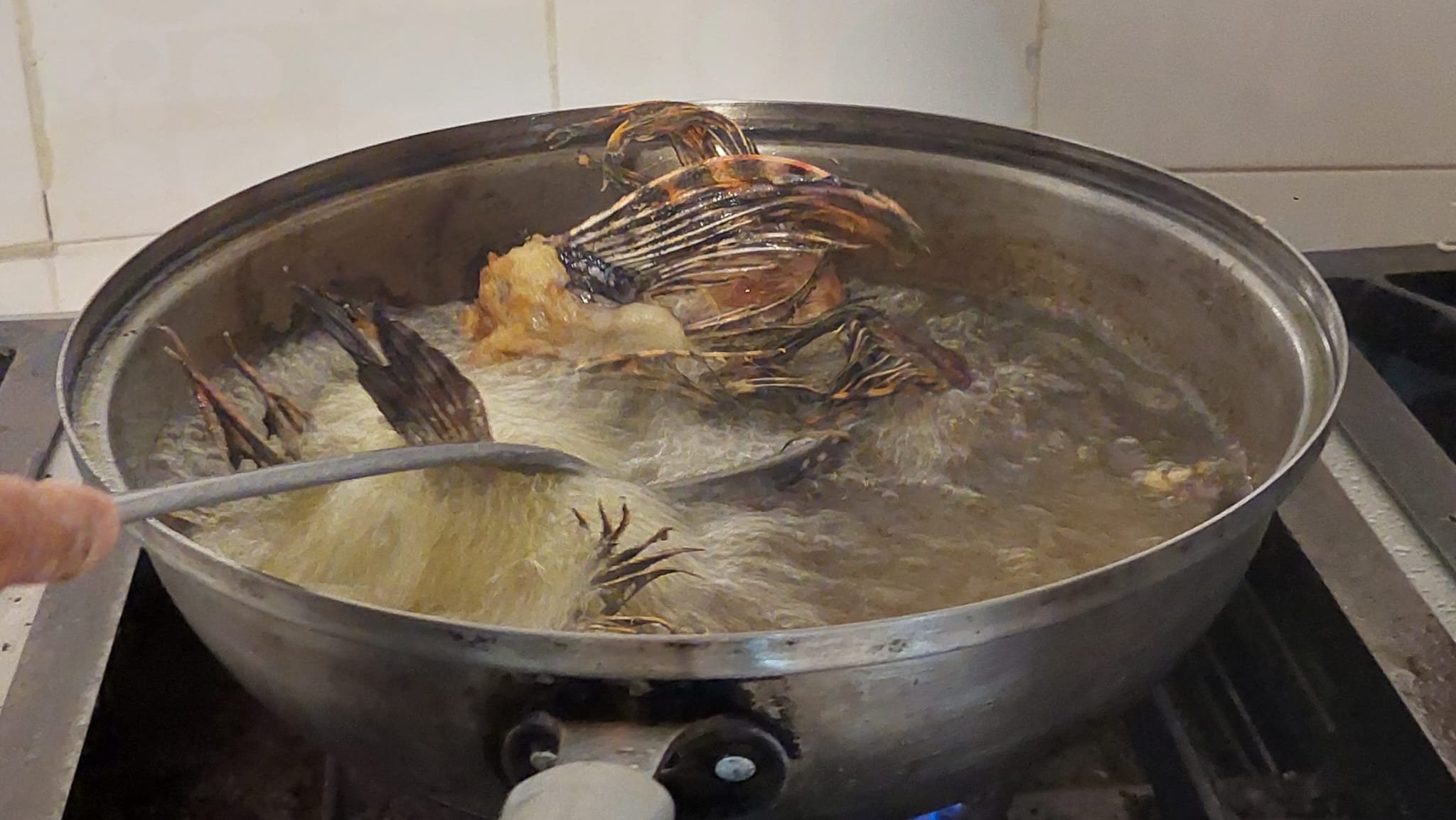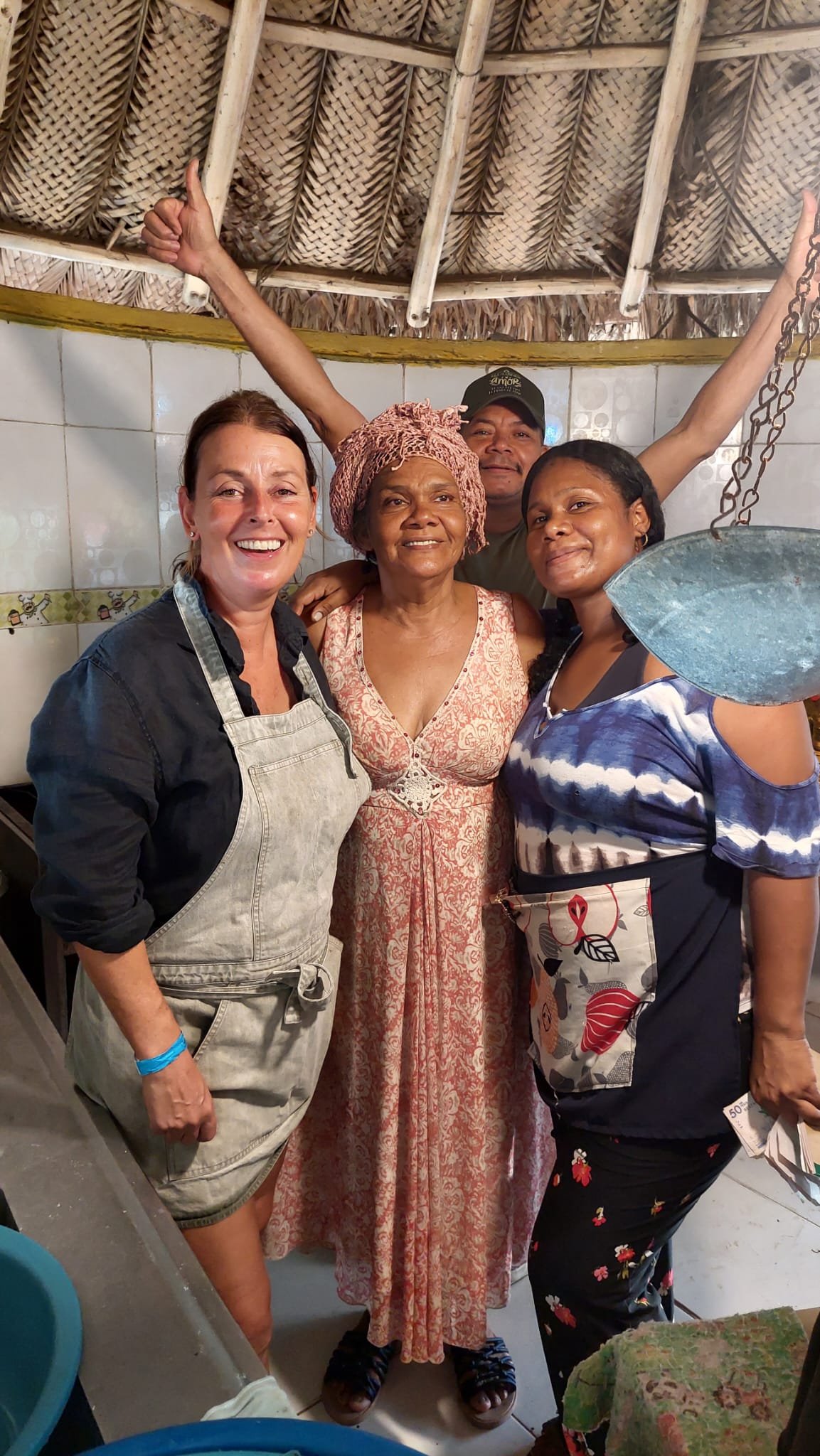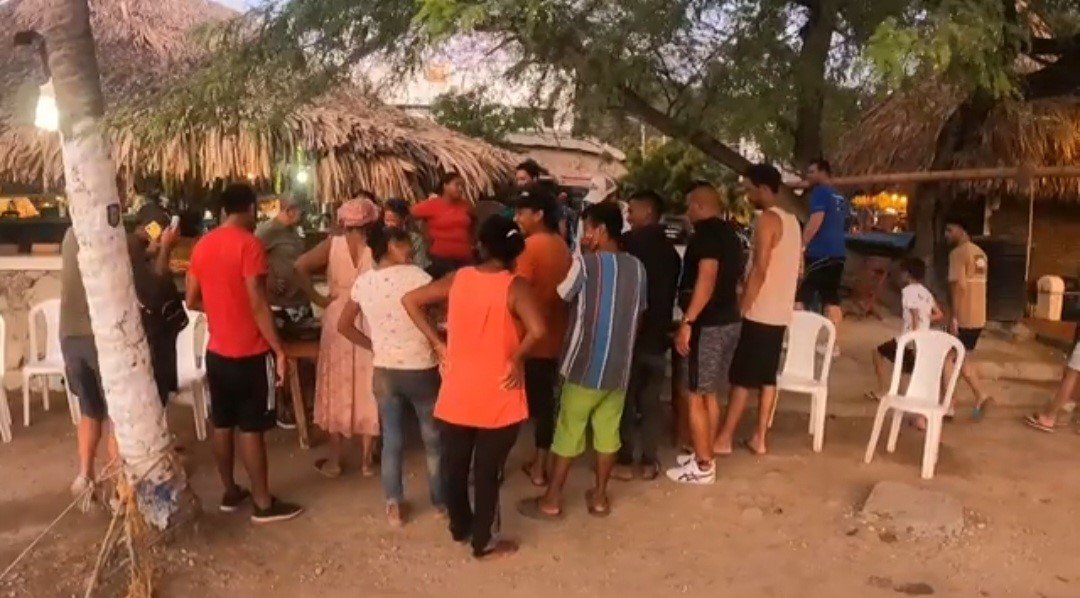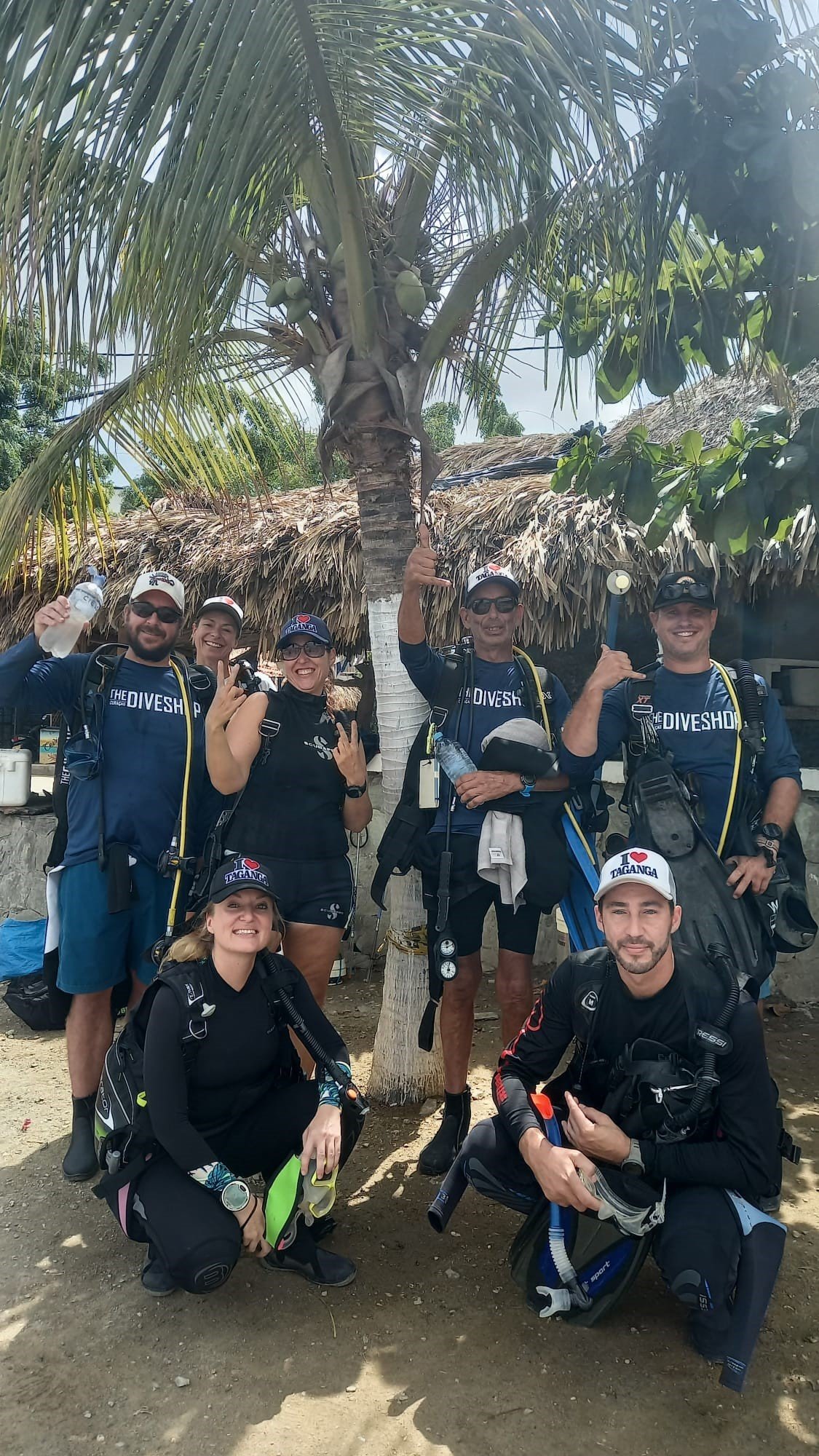Taganga, Colombia - step 1
In August a team from Curacao traveled to Tanganga, Colombia for a mission. The mission aimed to explore the size of the lionfish population and see if the local community is using the Lionfish.
During the mission, the team managed to catch 217 lionfish, totaling 67.5 kg in weight. This effort underscores the cross-border importance of nature conservation and regional collaboration to preserve marine ecosystems.
Lionfish, an invasive species originally from the Indo-Pacific region, poses a threat to native marine biodiversity. The Curaçao team explored the Colombian coastline and, despite the challenges, successfully captured 217 lionfish, weighing a total of 67.5 kg. This catch contributes not only to reducing the population of this invasive species but also to maintaining the delicate balance of marine ecosystems in the region.
Despite decades of presence in the Caribbean, lionfish is still not a common item on menus. Curaçao is even globally unique with Lionfish Caribbean in Kura Hulanda, which guarantees serving lionfish in six different preparations. To maximize the mission's impact, the team enlisted the expertise of professional Curaçaoan chef Helmi Smeulders. Under her guidance, the captured lionfish were transformed into culinary creations. The delicious dishes were eventually distributed to the local population of the fishing village. The goal was multi-faceted: not only to reduce the lionfish population but also to raise awareness about responsible consumption, the culinary diversity of lionfish, and to connect the community.
The success of the Curaçao team can be attributed to the dedication and involvement of the mission's participants. Their efforts in capturing lionfish and raising awareness about the issue demonstrate the potential of community-oriented nature conservation.
Team Members: Dunja Zinnert, Helmi Smeulders, Jeroen Blokzeijl, Daniëlle Kaashoek, Floor Den Dulk, Ian vd Roest, Aad Verschoor, Kenzy Vandenborre, Yvonne Bijman, and Lisette Keus."

